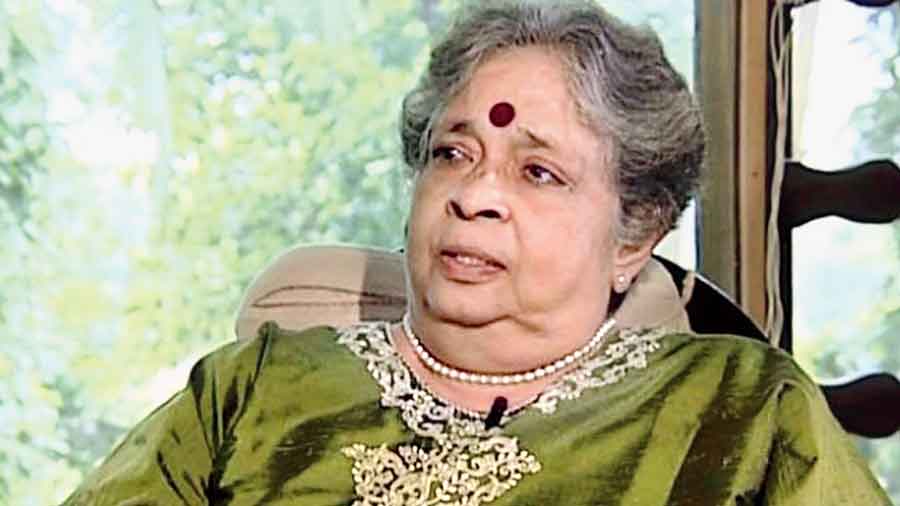Mary Roy, the educationist who successfully fought for gender rights in ancestral property in the Syrian Christian community, passed away in Kottayam in south Kerala on Thursday.
She was 89.Fondly addressed as Ammachi (mother), Mary Roy died after a brief illness. Her body was kept for public viewing at her home on the campus of her school, Pallikoodam (formerly Corpus Christi).
A private funeral is slated for Friday. She is survived by her children, author and Booker Prize winner Arundhati Roy and Lalith Roy. Mary Roy was known for winning the landmark case in the Supreme Court in 1986 that gave inheritance rights to Syrian Christian women in Kerala, until then reserved for their male siblings.
Mary Roy had launched her legal battle in 1983, seeking equal rights in her father’s property that was denied to her in keeping with the Travancore Christian Succession Act of 1916. She had famously attributed her struggle to win gender rights in her community to more than just the value of the property left by her father, P.V. Isaac, an entomologist, and for the larger cause of the Syrian Christian women denied intestate succession.
Born in 1933, she married Rajib Roy, a Bengali, whom she met during her stint as a secretary in Calcutta. Marital problems forced her to return to her father’s house in Ooty, the Tamil Nadu hill station, with her children.
It was a dispute over the property her brother George Isaac had claimed in full, in line with Syrian Christian norms, that eventually paved the way for the legal battle she fought against the gender bias.
A bench of Justices P.N. Bhagwati and R.S. Pathak had adjudicated the case — Mary Roy Vs State of Kerala — and delivered the judgment in February 1986, dealing a big blow to patriarchy in the Syrian Christian family system.
Jurists Indira Jaising and Kamini Jaiswal had represented Mary Roy.According to the act, if a Syrian Christian male died without leaving a will, his widow was entitled only to a maintenance allowance and the daughters could claim only a fourth of each of their siblings’ share, or Rs 5,000, whichever was less.Mary Roy’s fight was also against the silent acceptance within her community as women were married off with a hefty “sthreedhanam (patrimony or dowry)” and hence deemed to have received their share of their inheritance.
Inspired by Mary Roy, a nurse, Elikutty, and a retired teacher, Mariakutty, had eventually impleaded themselves in the case as they too were victims of the archaic norms prevalent in the community.
While Mary Roy had famously advertised in local dailies seeking more women from her community to implead in the case, few others stepped up, although many were keen, because of pressure from their male-dominated families.
Although the Supreme Court order had brought all Christians under the Indian Succession Act, 1925, gender inequality has yet to be entirely wiped out in the Syrian Christian community. It is again the argument that women are married off with dowry, which some families contend is the women’s effective share of the property, that works in many households even now.
Mary Roy stood out as an educationist, too, who believed in reforms to nurture the innate talent of children. From humble beginnings in 1967, her school has gone on to become one of the most creative centres of education in Kerala.She remained the principal until 2011 when she retired but continued to be its mentor.
The school was designed and built by renowned British-born architect Laurie Baker who made Kerala his home and propagated low-cost construction using local materials.Condoling her death, Kerala chief minister Pinarayi Vijayan said Mary Roy made significant contributions in education and activities to ensure women’s welfare in the society. The chief minister also recalled that she was a person who has made a place in history through her legal fight for property rights of women.Additional reporting from PTI











